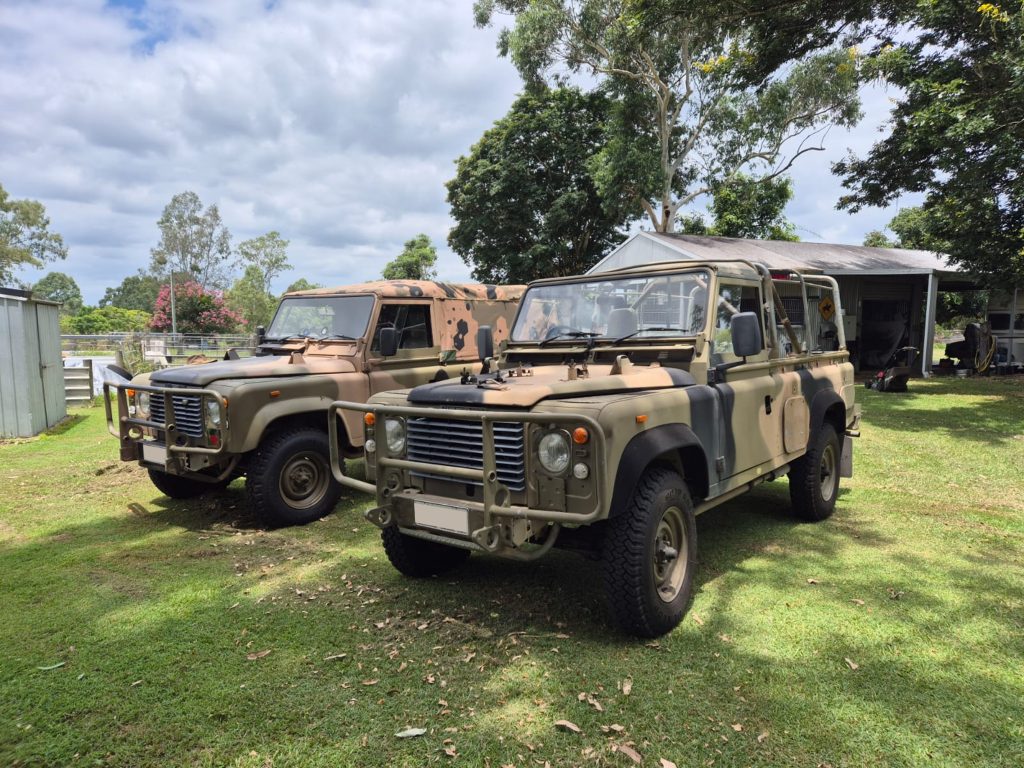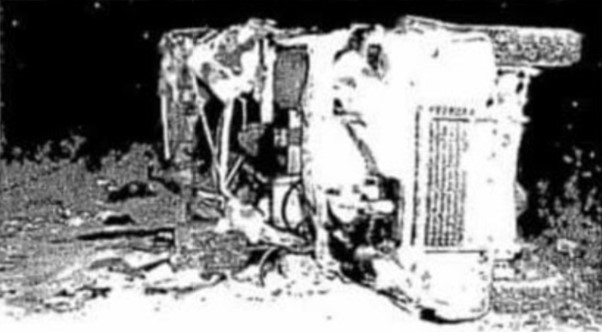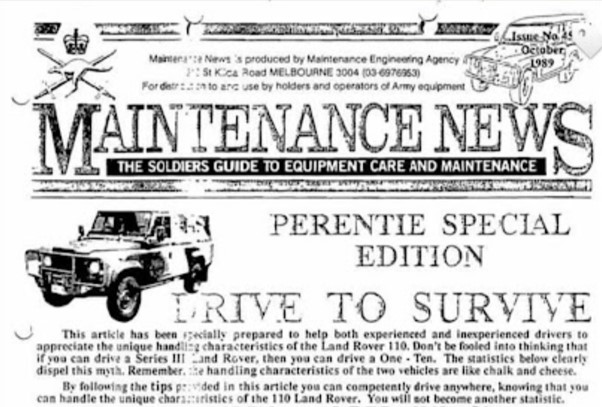Between 1987 and 1990 the Australian Army’s Project Perentie led to the production of approximately 2,500 4×4 Land Rover 110 vehicles. Two of them now live in Moggill, on the edge of the Brisbane River. In October 1989 Australia’s Maintenance Engineering Agency released a Perentie Special Edition of their newsletter, aimed at the soldiers who drove them.

The newsletter says it was produced to help drivers “...appreciate the unique handling characteristics of the Land Rover 110.”
“Don’t be fooled into thinking that if you can drive a Series III Land Rover, then you can drive a One-Ten…. The handling characteristics of the two vehicles are like chalk and cheese.”
Maintenance Engineering Agency
Perentie Special Edition – October 1989

Thirty-five years on, the cheese part has matured like an old stilton; crumbly, full of mould, and best brought to life with copious quantities of port! I can also confirm the unique handling characteristics. Vibrations of a cross-channel ferry, turning circle of a supertanker – that is if you have the arm strength to actually turn the steering wheel at rest, and on-road noise that confirms the feeling that you are driving a tin box covered by a tent. My daughter asked if it had airbags. Only the old gas-bag sitting on the driver’s seat. Its major safety feature is the door handle – if you don’t feel safe, step out!
But people here say the Australian Army specifications made them the best Land Rovers ever built. Galvanised chassis, 2-inch suspension lift and an indomitable Isuzu 3.9 litre truck engine that just goes and goes. One of my friends commented ‘I drove all over East Timor in one of those. We never again had vehicles so capable and easy to operate.’ Australia went to East Timor in 2002; that still makes them pretty old cheese!
One of the oldest problems of serving in armed forces is the mental health effects on individuals of military operations. Views on them, from ‘shell-shock’ identified in the First World War through ‘Lack of Moral Fibre’ in the second, have matured.
The Australian 2024 Royal Commission into Defence and Veteran Suicide concluded that the suicide rate among veterans and serving personnel was unacceptably high. Between 1985 and 2021, there were 2,007 confirmed suicide deaths of individuals. Two of our supported charities can help. Here, Mates4Mates remains committed to reducing the rates of suicide through early intervention and targeted support, and helps deal with all aspects of physical and mental health and wellbeing for current and ex-serving Australian Defence Force members. Combat Stress in the UK focuses on those with complex mental health issues resulting from their experiences during military service. So, to make a difference please share the GoFundMe link with your network and help contribute if you can.
